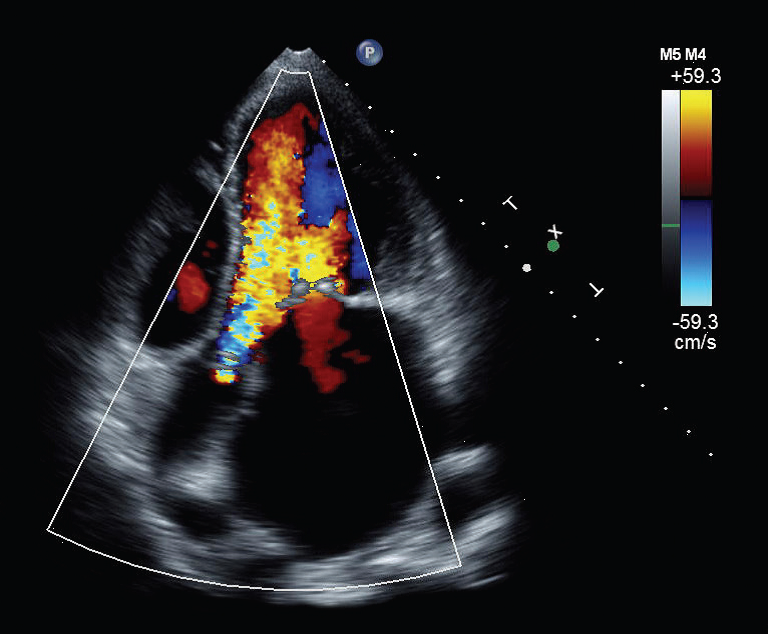Echocardiography (Echo)
Echocardiography (Echo)

Echocardiography is a key component of the routine evaluation of the patient with suspected or known cardiac disease.
Echocardiography is the first-line cardiac imaging investigation for many cardiac conditions. It is a non-invasive modality which may be used for all patients including paediatric and adult patients, as well as patients with pacemakers, stents and immobile patients. In the hospital setting echocardiography may be used at the bedside.
Echocardiography provides a comprehensive evaluation of the cardiac system and complements other modalities such as CTCA, MRI, angiography and nuclear imaging.
Echo is the primary gold standard for assessing cardiac size, valvular morphology and function, systolic and diastolic function, as well as wall thickness in hypertension. Echo may also be used to assess for rarer entities such as pericarditis and pericardial effusion. Echo is also used routinely prior to chemotherapy and anti-psychotic treatment, as well as monitoring during treatment.
Stress echocardiography may also be used to assess for dynamic changes in cardiac function due to ischaemia.
Echocardiography can investigate…
- Murmur
- Unexplained fatigue and shortness of breath
- Hypertension and left ventricular hypertrophy
- Palpitations
- Ankle swelling / peripheral oedema
- Enlargement of heart on an X-ray (Left ventricular size)
- Viral infections / pericardial effusion
- Endocarditis
- Transient ischaemic attack / stroke and cardiac masses
- Cardiomyopathy
Advantages of echocardiography
- Non invasive
- No radiation exposure
- Fast and painless
- Suitable for follow-up examinations
- Medicare funding is applicable for both GP and specialist referrals
What is involved?
An echocardiogram uses ultrasound with ECG electrodes attached to chest to monitor heart rhythm. The test takes between 30-40 minutes, requires no preparation and the patient will be lying on their left side for most of the test.
Clinical Indications
- Left ventricular size and function – following heart attack, angina, cardiac failure; preventing complications from the use of certain medications such as clozapine or chemotherapy agents
- Systolic and diastolic function
- Right ventricular size and function
- Estimating pulmonary artery pressure
- Valvular stenosis and regurgitation
- Pericardial disease
- Post cardiac surgery – bypass surgery, valve replacements, chest pain
- Congenital heart disease
Need more help?
If you have any questions or enquiries regarding our cardiac imaging services, please contact your local I-MED Radiology clinic or your Account Manager.
Download the echocardiography information sheet here.
